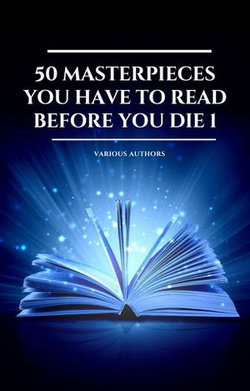This book, newly updated, contains now several HTML tables of contents that will make reading a real pleasure! The first table of contents (at the very beginning of the ebook) lists the titles of all novels included in this volume. By clicking on one of those titles you will be redirected to the beginning of that work, where you'll find a new TOC that lists all the chapters and sub-chapters of that specific work. 1. Little Women (Louisa May Alcott) 2. The Divine Comedy (Dante Alighieri) 3. Meditations (Marcus Aurelius) 4. Emma (Jane Austen) 5. Pride and Prejudice (Jane Austen) 6. The Wonderful Wizard of Oz (L. Frank Baum) 7. Jane Eyre (Charlotte Brontë) 8. Wuthering Heights (Emily Brontë) 9. The Tenant of Wildfell Hall (Anne Brontë) 10. Don Quixote (Miguel de Cervantes) 11. The Mysterious Affair at Styles (Agatha Christie) 12. The Richest Man in Babylon (George S. Clason) 13. The Adventures of Sherlock Holmes (Arthur Conan Doyle) 14. Heart of Darkness (Joseph Conrad) 15. A Tale Of Two Cities (Charles Dickens) 16. Crime and Punishment (Fyodor Dostoyevsky) 17. The Count of Monte Cristo (Alexandre Dumas) 18. Middlemarch (George Eliot) 19. The Innocence of Father Brown (G. K. Chesterton) 20. The Border Legion (Zane Grey) 21. The Scarlet Letter (Nathaniel Hawthorne) 22. Think And Grow Rich (Napoleon Hill) 23. The Odyssey (Homer) 24. The Iliad (Homer) 25. The Hunchback of Notre-Dame (Victor Hugo) 26. Les Misérables (Victor Hugo) 27. The Secret Garden (Frances Hodgson Burnett) 28. The Legend of Sleepy Hollow (Washington Irving) 29. The Turn of the Screw (Henry James) 30. The Metamorphosis (Franz Kafka) 31. The Jungle Book (Rudyard Kipling) 32. The Call Of The Wild (Jack London) 33. Anna Karenina (Leo Tolstoy) 34. War and Peace (Leo Tolstoy) 35. At the Mountains of Madness (H.P Lovecraft) 36. The Call of Cthulhu (H.P Lovecraft) 37. Anne of Green Gables (Lucy Maud Montgomery) 38. The Power of Your Subconscious Mind (Joseph Murphy) 39. Treasure Island (Robert Louis Stevenson) 40. The Fall Of The House Of Usher (Edgar Allan Poe) 41. Swann's Way (Marcel Proust) 42. The Federalist Papers (Publius) 43. Frankenstein (Mary Shelley) 44. Dracula (Bram Stoker) 45. A Connecticut Yankee in King Arthur's Court (Mark twain) 46. The Art of War (Sun Tzu) 47. Tao Te Ching (Lao Tzu) 48. Ben-Hur: A Tale of the Christ (Lew Wallace) 49.The Science of Getting Rich (Wallace D. Wattles) 50. The War of the Worlds (H. G. Wells)




Share This eBook: